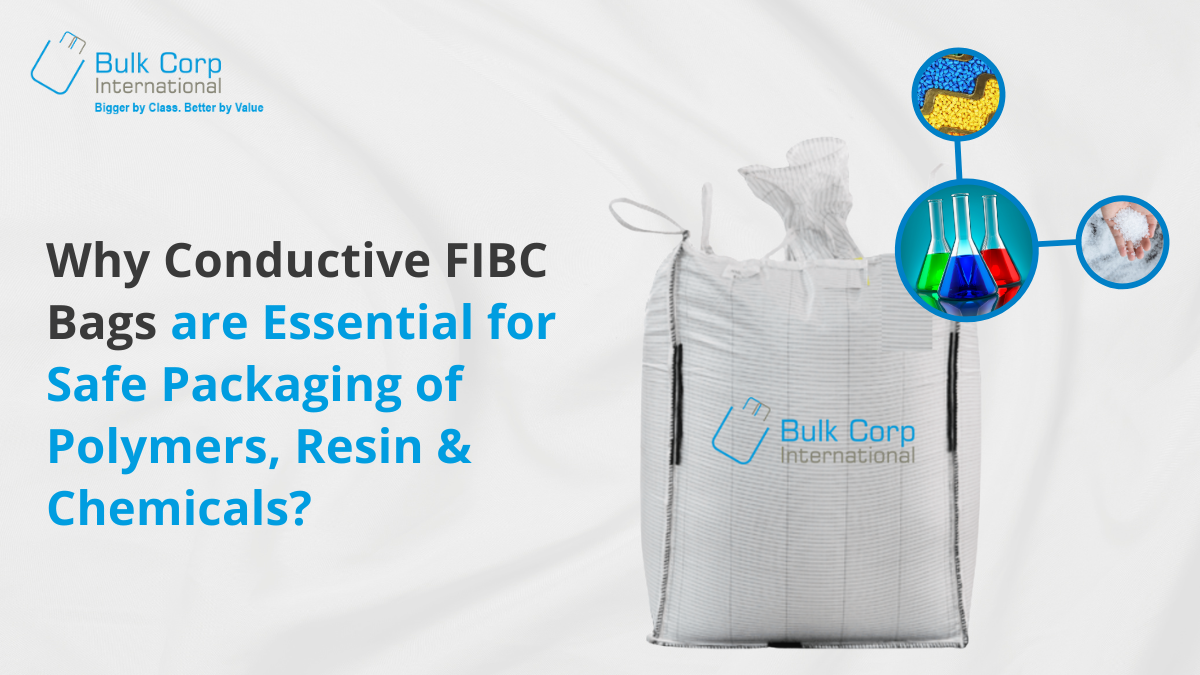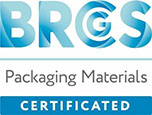Why Conductive FIBC Bags are Essential for Safe Packaging of Polymers, Resin & Chemicals?

The global demand for safe and efficient packaging of industrial materials like polymers, resin, and chemicals is on the rise. As companies handle increasingly sensitive or hazardous substances, the need for specialized packaging solutions becomes crucial. One such packaging innovation is the conductive FIBC bag — a reliable, durable, and safety-focused product designed specifically for environments where static electricity poses a serious risk.
In this blog, we’ll explore why FIBC conductive bags are essential in the packaging and transportation of flammable or electrostatically sensitive materials, including polymers, resins, and chemicals. We’ll also delve into how these bags work, the benefits they offer, and their role in maintaining safety and compliance across industries.
Understanding Conductive FIBC Bags
Conductive FIBC bags, also known as Type C FIBC bags, are large bulk containers made from woven polypropylene fabrics that are interwoven with conductive threads. These threads are connected to a grounding point to safely discharge any static electricity that may build up during the filling, storage, or transportation of bulk materials.
Electrostatic discharges (ESD) are a major hazard when working with flammable powders or combustible materials. In such scenarios, even a small spark can trigger catastrophic explosions or fires. FIBC conductive bags are engineered specifically to prevent such incidents by eliminating static buildup and dissipating it safely.
Why Static Protection Matters for Polymers, Resin & Chemicals?
Polymers, resins, and certain chemicals often have insulating properties and are prone to generating static electricity when moved, poured, or agitated. The presence of fine particles, low humidity, and friction can result in the accumulation of electrostatic charges. If these materials are handled in a flammable atmosphere, the potential for electrostatic discharge becomes dangerous.
Here’s why conductive FIBC bags are non-negotiable for packaging such substances:
1. Prevents Electrostatic Discharge (ESD)
When dealing with volatile or fine particulate materials like certain resins and polymer pellets, ESD can act as an ignition source. FIBC conductive bags prevent such incidents by grounding the static electricity safely during filling or discharging operations.
2. Meets Industry Safety Regulations
Several industries mandate the use of grounded packaging systems for handling flammable materials. Type C FIBC bags shall meet several international safety standards before they are utilized. Using non-conductive bags in explosive environments can lead to regulatory violations, fines, or worse — workplace accidents.
3. Supports Safe Chemical Transport
Chemicals like solvents, adhesives, and coatings are often flammable or reactive. Conductive FIBC bags ensure that the storage and transit of these materials are secure, with no risk of electrostatic ignition.
Key Features of Conductive FIBC Bags
Let’s look at some notable features that make FIBC conductive bags an essential part of chemical and polymer packaging operations:
- Conductive Yarn Weaving: These bags feature carbon filaments or conductive threads interwoven into the polypropylene fabric to conduct electricity.
- Grounding Loop: A designated grounding point ensures that static charges are neutralized through a safe path.
- Customizable Sizes & Load Capacity: Conductive FIBCs can be tailored to fit industry-specific needs, typically supporting loads ranging from 500 kg to 2000 kg.
- Durable Construction: Designed to withstand the rigors of industrial handling, these bags resist tearing, punctures, and environmental degradation.
- Reusability: With proper grounding protocols and inspection, many Type C bags can be reused, making them an eco-friendlier solution than single-use alternatives.
Ideal Use Cases for Conductive FIBC Bags
a. Polymers & Plastic Pellets
Polymers like polyethylene and polypropylene are commonly packaged in bulk for industrial processing. As these materials are poured or transported, static buildup is a natural occurrence. Conductive FIBC bags help safely manage this static, especially during dry bulk loading/unloading.
b. Resins
Thermoplastic and thermoset resins used in adhesives, sealants, and molding applications are often stored in powder or granular form. Conductive FIBC bags provide a grounded environment that eliminates the risk of ignition in resin storage and transfer facilities.
c. Flammable Chemicals
Certain chemicals — including solvents, additives, and fine chemical powders — are highly reactive. Type C bags prevent sparks from electrostatic discharge, which could otherwise lead to fire or explosion during filling or discharging.
Comparison: Conductive FIBC Bags vs. Standard FIBC Bags
| Feature | Standard FIBC Bags (Type A/B) | Conductive FIBC Bags (Type C) |
| Static Protection | None / Partial (in Type B) | Full with grounding |
| Suitable for Flammable Atmospheres | ||
| Grounding Required | No | Yes |
| Material | Woven PP | Woven PP with conductive yarn |
| Cost | Lower | Slightly Higher, but justified by safety |
| Compliance | Limited | Complies with IEC and NFPA standards |
Best Practices for Using Conductive FIBC Bags
To maximize the safety and effectiveness of FIBC conductive bags, adhere to the following best practices:
- Always Ground the Bag: The conductive threads must be connected to a verified ground point before and during use.
- Avoid Using Damaged Bags: Conductivity is compromised if the bag’s conductive elements are damaged.
- Train Operators: Personnel should be trained in static electricity hazards and the correct use of Type C bags.
- Inspect Regularly: Regular inspection ensures the grounding points and conductive paths are intact and functional.
Conclusion
In industries dealing with static-sensitive or flammable materials such as polymers, resins, and chemicals, conductive FIBC bags are not a luxury — they are a safety necessity. These bags prevent potentially deadly static discharges and offer a secure, compliant, and cost-effective packaging solution.
If you’re in the business of storing or transporting any kind of static-prone bulk material, making the switch to FIBC conductive bags can protect your products, workers, and equipment — while keeping you compliant with safety regulations.
Need Safe & Reliable Conductive FIBC Bags?
At Bulk Corp, we manufacture and supply premium-quality conductive FIBC bags designed for industrial safety and bulk handling efficiency. With customizable solutions and adherence to global safety standards, our bags ensure that your polymers, resins, and chemicals are packaged with the protection they deserve.
Get in touch today to discuss your packaging requirements or request a custom quote.
Secure your shipments. Safeguard your operations. Choose Bulk Corp.





